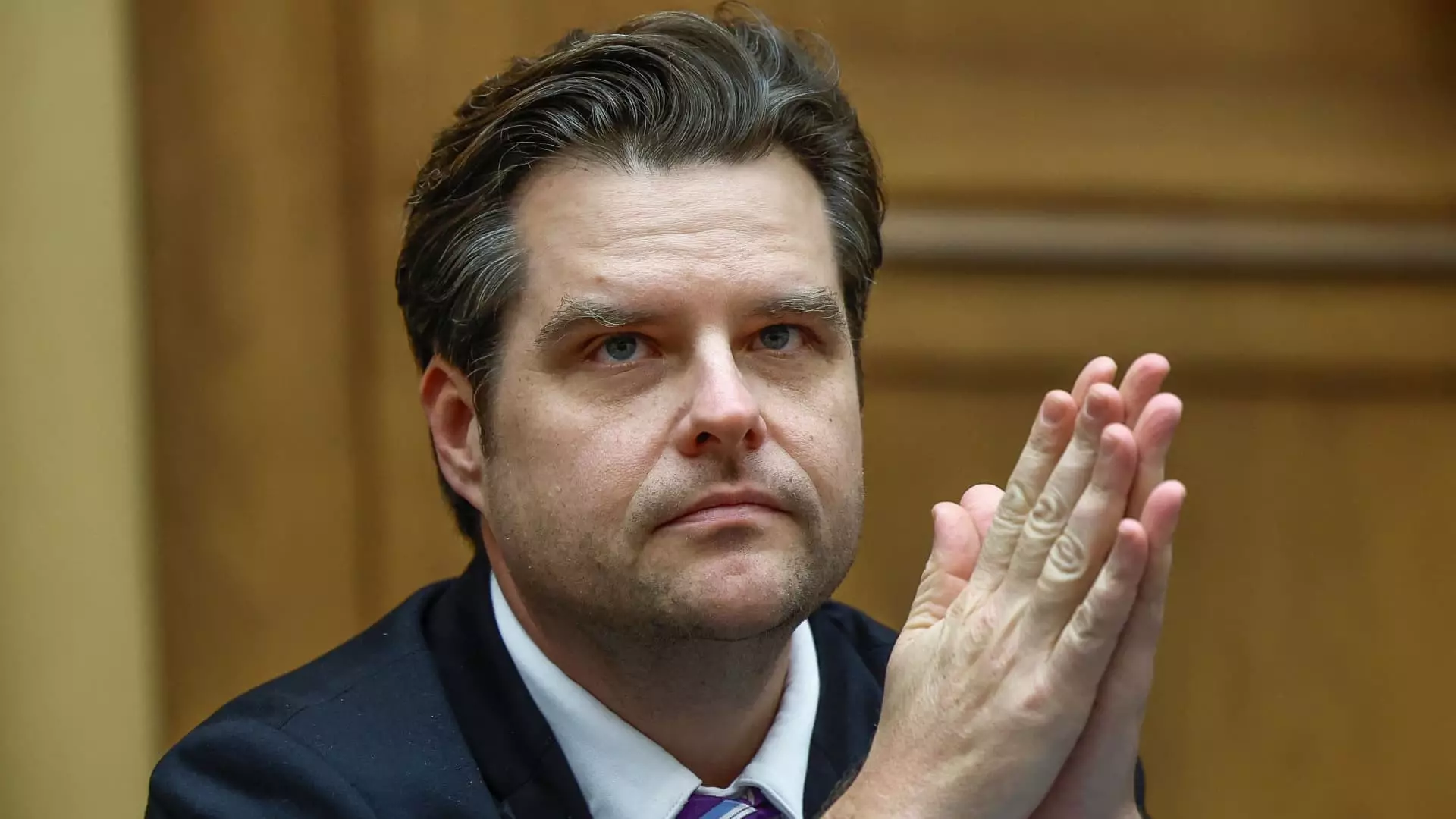The recent revelations stemming from the House Ethics Committee’s extensive investigation into former Republican Representative Matt Gaetz have raised significant ethical and legal questions about his conduct while serving in Congress. The committee’s report, released after a prolonged investigation, details accusations that Gaetz engaged in illegal activities, including sexual interactions with minors, illicit drug use, and the acceptance of excessive gifts, all of which paint a troubling portrait of his time in office.
The most alarming allegations outlined in the committee’s report describe Gaetz’s involvement in sexual relations with a then-17-year-old female. According to the findings, there is “substantial evidence” that he not only engaged in sexual acts with the minor at a party in July 2017 but also compensated her for these acts. Gaetz’s actions, which violated numerous legal and ethical guidelines, suggest a blatant disregard for the laws designed to protect vulnerable populations, specifically minors. The report indicates that he had sex with this underage girl not just once but twice, further compounding the severity of his actions.
Additionally, the committee found that Gaetz participated in illegal drug use during his congressional tenure, including the consumption of cocaine and ecstasy. The juxtaposition of drug use and sexual misconduct raises serious concerns about his judgment and suitability for public office, considering his role as a policymaker who should epitomize ethical behavior. When the public looks to elected officials, they expect a standard of conduct that is not only lawful but also exemplifies moral integrity.
The report also scrutinizes Gaetz’s acceptance of lavish gifts, including a trip to the Bahamas in 2018, which was deemed to exceed permissible limits. Such actions bring to light broader issues of corruption and ethical violations within politics, raising questions about how money and influence can sway legislative conduct. The acceptance of gifts by elected officials is particularly sensitive, as it can lead to perceived or real conflicts of interest, thereby undermining public trust in government institutions.
These findings serve as a stark reminder of the necessity for ethical guidelines in politics and the importance of accountability for those in high office. When public officials prioritize personal gains over their responsibilities to their constituents, they jeopardize not only their integrity but also the principles of democracy itself.
Complicating matters further, while the Ethics Committee substantiated numerous violations, it ultimately concluded there was insufficient evidence to charge Gaetz with federal sex trafficking. The report stated that although he did cause the transportation of women across state lines for commercial sex, there was no conclusive evidence to suggest that these women were under 18 at the time of travel. This distinction underscores a critical and often contentious area of law: the enforcement of human trafficking statutes versus state-level charges related to sexual misconduct.
The committee’s findings also indicate a conscious effort to navigate complex legal waters, attempting to maintain a level of due process even as serious allegations surfaced. The nature of these investigations can become politically charged and emotive, as evidenced by Gaetz’s vehement denials and attempts to challenge the proceedings against him through legal avenues, including seeking a restraining order against the report’s release.
The implications of this report are wide-ranging, not only for Gaetz but for the broader political landscape. His resignation from Congress shortly after receiving these allegations suggests an acute awareness of the damage such reputations can inflict on political careers. Yet, it exposes a critical vulnerability within political systems: what happens when public servants misuse power and exploit their positions?
Moreover, the timing of the report’s release on Christmas Eve raised eyebrows and opened the committee to criticisms of political motivation. Gaetz himself framed this timing as an attempt to suppress his rebuttals. The divided nature of the committee, equally composed of Democrats and Republicans, adds another layer of complexity, leading to speculation about political maneuvers intended to shield or condemn members based on party alignment.
The findings of the House Ethics Committee regarding Matt Gaetz embody a significant chapter in the ongoing dialogue about ethics in politics. The revelations of sexual misconduct, drug use, and corruption challenge the integrity of elected officials and call into question the efficacy of existing oversight mechanisms. For the American public, these events underscore the necessity of vigilance and accountability in government, lest the actions of a few diminish the democratic ideals that underpin society. As the political landscape continues to evolve, the need for rigorous ethical standards and transparent processes remains paramount in preserving public trust.


Leave a Reply